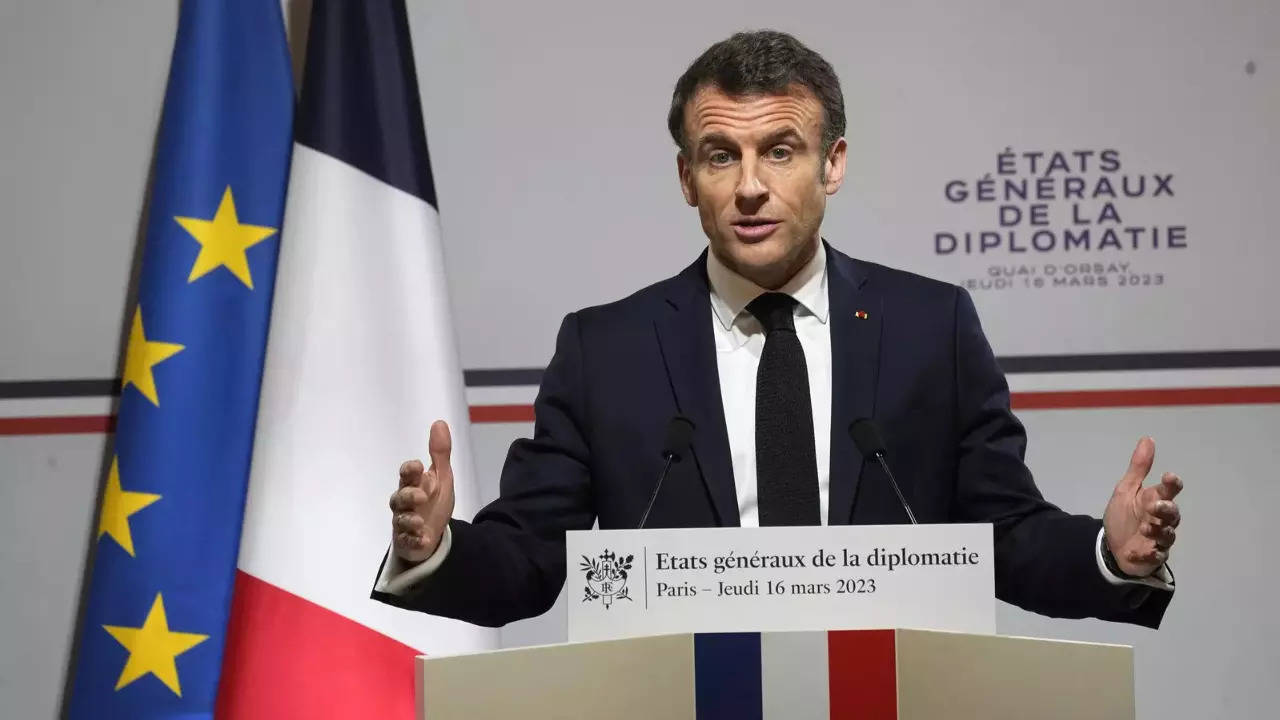This website uses cookies so that we can provide you with the best user experience possible. Cookie information is stored in your browser and performs functions such as recognising you when you return to our website and helping our team to understand which sections of the website you find most interesting and useful.

France on Saturday braced for a weekend of protests, after a second night of unrest sparked by President Emmanuel Macron imposing an unpopular pension overhaul without a parliament vote.
Macron's government on Thursday invoked a controversial executive power to force through the bill by decree, something that is legal under France's constitution.
The move has caused outrage among France's political class and confrontational protests in the street, presenting the president with one of his biggest challenges less than a year into his second and final mandate.
Opposition lawmakers have filed two motions of no confidence in the government to be debated in parliament on Monday afternoon, according to parliamentary sources.
They hope to garner enough support to topple the cabinet and repeal the law to raise the retirement age from 62 to 64.
Unions have called for small protests over the weekend ahead of coordinated nationwide strikes and rallies against the bill on Thursday next week.
On Friday evening, thousands of people for a second night rallied opposite parliament to vent their frustration at the government imposing its will despite two months of nationwide strikes and demonstrations.
Police moved in to disperse the crowd at nightfall, after a fire was lit in Place de la Concorde, AFP journalists said.
Groups of people threw bottles and fireworks at the security forces, who responded by firing tear gas to try to clear the square. Police said they made 61 arrests.
Similar scenes unfolded in other parts of the country.
In the eastern city of Lyon, demonstrators tried to break into a town hall and set fire to the building, police said. It detained 36 arrests people.
Opinion polls have shown around two-thirds of French people oppose the reform, which is also to demand people work longer for a full pension.
The government has said it is necessary to avoid the system from slipping into deficit, and bring France into line with its European neighbours where the legal retirement age is typically later in life.
But critics say the changes are unfair for people who start working at a young age in physically tough jobs, and women who interrupt their careers to raise children.
Mass strikes and protests since mid-January have garnered some of the largest crowds in decades, but the popular movement seemed to be starting to wane in the days before the government imposed the bill.
The capital's municipal rubbish collectors have however kept up a rolling strike, leaving an estimated 10,000 tonnes of trash festering in the streets, putting off tourists and worrying restaurant owners.
Unions from national train operator SNCF on Friday urged workers to continue another continuous strike that has caused major disruption on the network.
In the energy sector, the CGT union has said strikers would halt production two refineries by this weekend or Monday at the latest.
Macron put the pensions reform at the centre of his re-election campaign last year.
But the 45-year-old former banker lost his parliamentary majority in June after elections for the National Assembly.
The government used the controversial article 49.3 of the constitution Thursday as it feared it did not have enough backing in the lower house to win a vote on the pensions bill.
But Prime Minister Elisabeth Borne's cabinet is largely expected to survive any no-confidence vote.
The motion would need backing from around half the group of opposition right-wing Republicans, a scenario seen as highly improbable.
Read More



 Africana55 Radio
Africana55 Radio 

